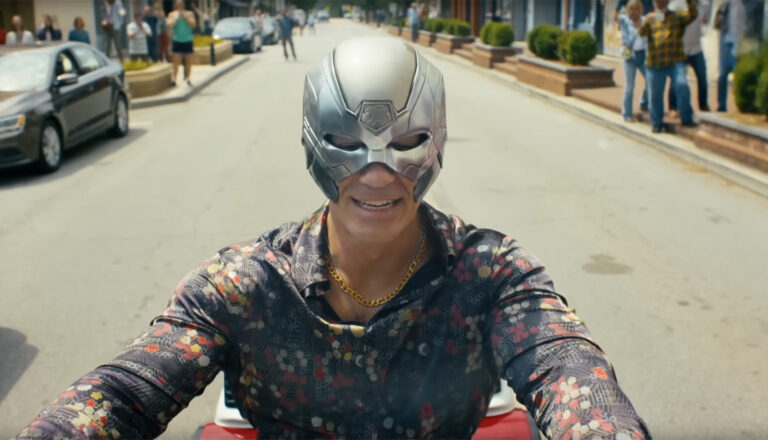
Peacemaker
Peacemaker is to superhero as ringworm is to earthworm. It might seem like these two things are related based on their names, but they aren’t.
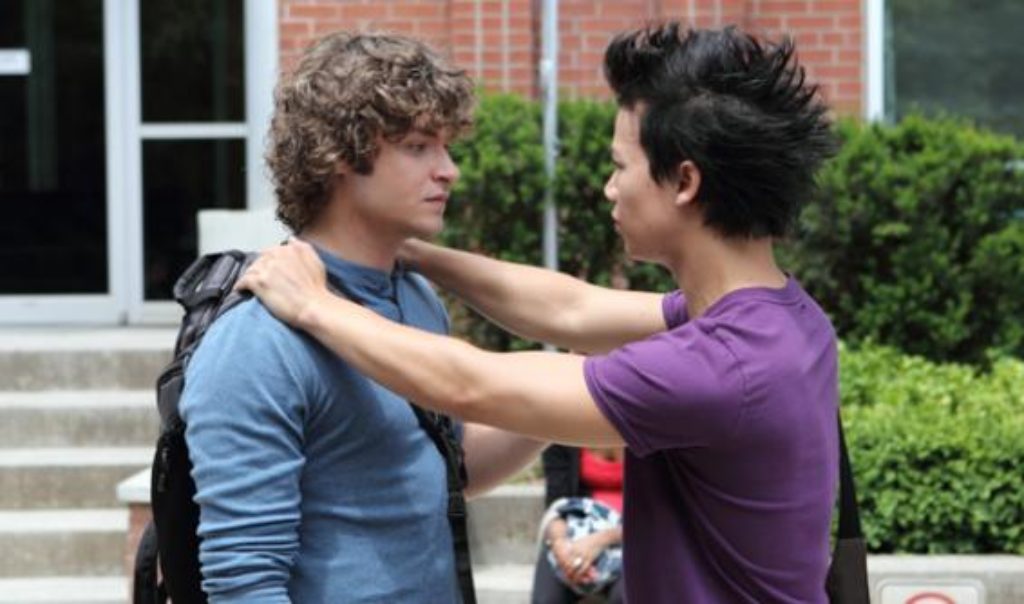
Before Hannah Montana and iCarly; before Beverly Hills, 90210 and Saved by the Bell; there was Degrassi.
The Canadian kid/teen dramedy was created way back in 1979, when phones had cords and text was a noun. It’s undergone several incarnations: The Kids of Degrassi Street, Degrassi Junior High, Degrassi High and, since 2001, Degrassi: The Next Generation—a high school-themed show.
Over that time, cast members have come and gone like the tides washing into Prince Edward Island. Seniors graduate and freshmen arrive. Characters get married, get jobs, get pregnant, get drunk, get arrested. Though never blessed with blockbuster ratings and sequestered to the tiny Nickelodeon spin-off channel TeenNick (at least in the U.S.), Degrassi has been one of television’s more influential—and more controversial—programs. While characters on Disney and Nickelodeon’s main channel navigate such high school perils as peer pressure and cheating, Degrassi teens grapple with alcoholism, pregnancy (six different characters have gotten pregnant in the larger Degrassi series), homosexuality and a raft of other issues.
One example: During Degrassi High’s run, a pregnant girl struggled with pro-life advocates outside an abortion clinic—a plot point that stirred waves of protest and two separate endings: In Canada, the character definitively went through with the abortion, while Stateside, the show wrapped with quite a bit of ambiguity.
So the stage has been set for 2010’s Degrassi: The Boiling Point. For most of its history, the various Degrassi series have played out much like all the other standard television programs. Most storylines were neatly resolved in the span of an episode, with a few lingering threads stretching over a full season. With The Boiling Point, Degrassi goes all telenovela on its fans, getting started by firing off nightly episodes (Monday through Friday) for six weeks straight. The season’s full run will stretch to a whopping 48 episodes, leaving perhaps even the most ardent Degrassi fans sated.
It may leave them titillated, too. Teens obsessed with love—and by love I mean sex—have found a kindred spirit in this show: Premarital hanky-panky is accepted, even encouraged, and sexual patter commonplace. The two-hour Boiling Point premiere introduces a brother-sister relationship that wades into incestuous waters. And in mid-August, Degrassi is expected to introduce its first transgender character—a student named Adam who, in reality, is a girl. The Canadian Press reports that the folks behind the show have been in close contact with GLBT organizations as they’ve developed the character.
“The writing is good,” says 15-year-old Jordan Todosey, who plays Adam. “They really go out there with that kind of stuff and I think that this character can really speak for anybody who is outcast or bullied or transgender or anything like that.”
Degrassi caters exclusively to tweens and teens. Its cast is filled with teens and twentysomethings. But it’s a celebration of not youth, but childishness, a salute to immature behavior with nary a sober, moral mooring in sight. This is a world in which becoming an adult just means driving a car and having sex, not growing up.
(Editor’s Note: Plugged In is rarely able to watch every episode of a given series for review. As such, there’s always a chance that you might see a problem that we didn’t. If you notice content that you feel should be included in our review, send us an email at letters@pluggedin.com, or contact us via Facebook or Instagram, and be sure to let us know the episode number, title and season so that we can check it out.)
Spinner breaks up with Jane after she sleeps with rich-boy Declan. He also punches Declan in the face. But his really, really bad day isn’t over yet, because Emma, who he’s just hired at the coffee shop is, at the very moment he’s KO’ing Declan, accidentally burning the place down. Emma, trying to cheer Spinner up, takes him to Niagara Falls, where the two make $2,500 gambling, drink lots of liquor—and get married in a moment of drunken inspiration. We see them in bed together afterwards, Emma wearing a veil and, apparently, nothing else. (The two flirt with getting divorced, but decide to celebrate their marriage with a party instead.)
Meanwhile, Jane runs away to New York City with her friends Holly J., Declan and Declan’s twin sister, Fiona. The foursome have free rein of Declan and Fiona’s family’s posh penthouse, where it’s fairly obvious that Declan and Holly J. are sleeping together. Fiona is so jealous of Holly that she publicly plants a full-lipped (drunken) kiss on her brother. That’s after quite a lot of serious bickering and meanspirited manipulation flies back and forth between the two girls. Another fight (this one of the push-and-shove variety) happens when Jane tries to break up Spinner’s wedding party.
Girls dress in skimpy bikinis (for quite a long scene) and cleavage-baring tops. Teens belt out “b‑‑ch” and “h‑‑‑,” along with misuses of God’s name. Religion is ridiculed in a song.


Paul Asay has been part of the Plugged In staff since 2007, watching and reviewing roughly 15 quintillion movies and television shows. He’s written for a number of other publications, too, including Time, The Washington Post and Christianity Today. The author of several books, Paul loves to find spirituality in unexpected places, including popular entertainment, and he loves all things superhero. His vices include James Bond films, Mountain Dew and terrible B-grade movies. He’s married, has two children and a neurotic dog, runs marathons on occasion and hopes to someday own his own tuxedo. Feel free to follow him on Twitter @AsayPaul.

Peacemaker is to superhero as ringworm is to earthworm. It might seem like these two things are related based on their names, but they aren’t.
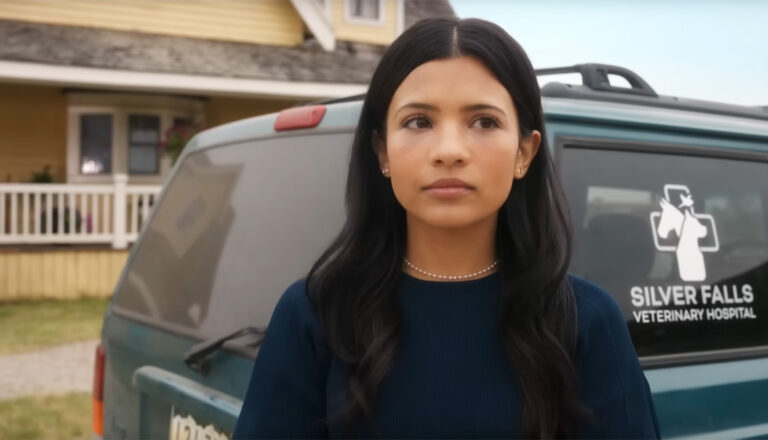
This Netflix drama about a teen girl who has moved from NYC to Colorado features enough adolescent angst to electrify a small city.
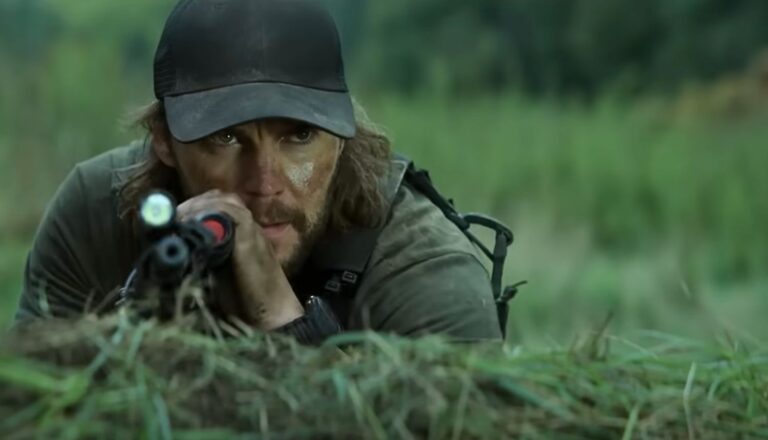
‘The Terminal List: Dark Wolf’ provides more context for the events in ‘The Terminal List.’ It also expands on the original show’s violence and profanity.
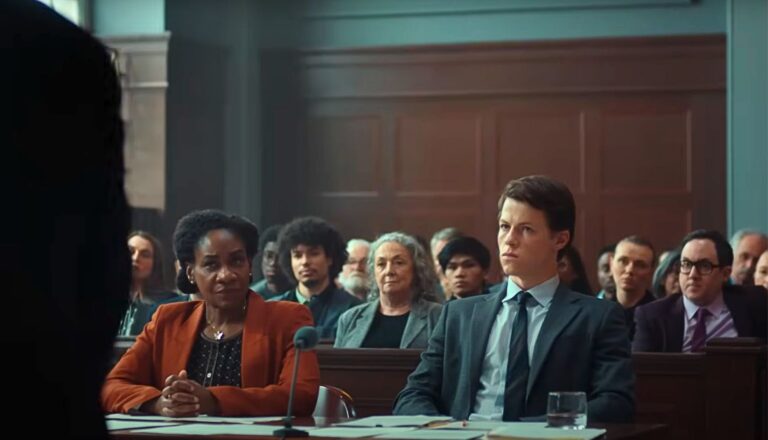
This adaptation may lack the depth of its source material, but it isn’t a bad option if you’re itching for a new legal drama.